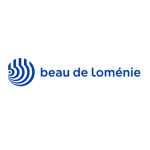The market for certain spare parts used for motor vehicle repair may be liberalised in France.
Today, Directive 98/71/EC of the European Parliament and of the Council of October 13 1998 on the legal protection of designs provides a status quo for these parts, in that member states can only change their national legislation in the direction of liberalisation, i.e. a lack of protection.
In France, the protection of automative parts as designs is open to any particular part that meets the legal conditions of designs protection, for a duration of 25 years. When the condition of being original is met, the parts can then also be protected by copyright for 70 years. This large protection was confirmed by the French Supreme Court (Cass. Crim. December 2 2003 n°02-88459).
A law still under discussion has added an exception to copyright monopoly so that when the component part is disclosed, its author cannot prohibit "the reproduction, use and marketing of parts intended to restore its original appearance to a motor vehicle or trailer...". This provision would come into effect on January 1 2020.
The protection by design is also amended to exclude "acts intended to restore its original appearance to a motor vehicle or trailer... for (a) parts relating to glazing, optics and mirrors; b) or made by the suppliers who manufactured the original part". It should be noted that the market for glazing and optics parts represents 30% of the spare parts market.
The protection period would also be reduced from 25 years to 10 years, while the entry into force would be January 1 2020 for parts under a) and January 1 2021 for parts under b).
Therefore, some aftermarket parts and all parts manufactured by suppliers who manufactured the original parts would be liberalised. This could constitute as much as 80% of a new vehicle.
However, there are still some obstacles: first, the use of the molds by the suppliers, and the removal of the car manufacturer's logo on the parts, which is still trademark infringement. There is also the question of access to technical information required to enable the repair.
On the other hand, Article 110 of the Community Design regulation (EC) No 6/2002, provides that protection, as a community design does not exist for a design that is a part of a complex product used to allow the repair of this complex product in order to restore its original appearance.
This only applies to replacement parts that are identical to the original part (ECJ, December 20, 2017 joined cases C 397/16 and C 435/1).
This ruling was recently applied by the Court of Appeal of Paris, on September 11 2018 against tuning parts.

|
Aurélia Marie |
Cabinet Beau de Loménie
158, rue de l’Université
F - 75340 Paris Cedex 07 France
Tel: +33 1 44 18 89 00
Fax: +33 1 44 18 04 23











